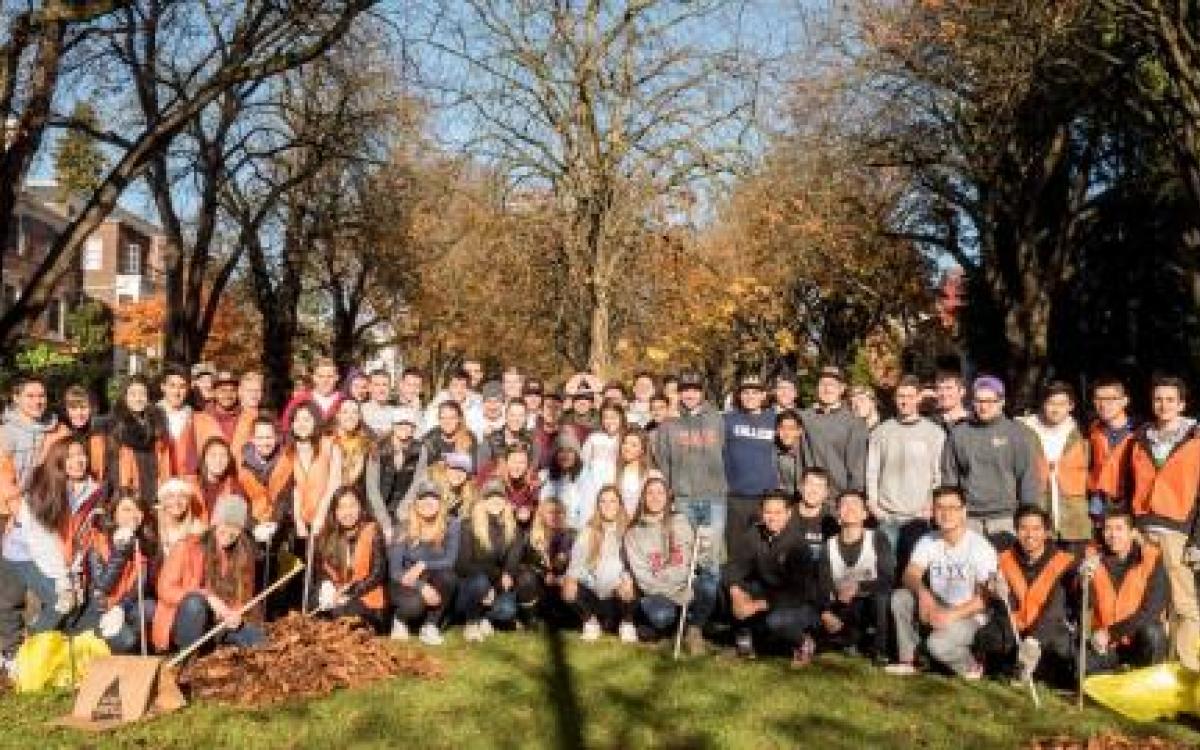At a glance
The Green Greek Representative Energy Challenge is a challenge designed to make the Greek community more energy efficient,… Read full summary
- Funding received
- 2016-2017
- Small
- Awarded
- $1,000
- Funding partners
-
- Services and Activities Fee (SAF)
The Green Greek Representative Energy Challenge is a challenge designed to make the Greek community more energy efficient, which will make it more desirable to people who choose housing based on sustainability. Through this challenge, we seek to educate men and women in the Greek community about making sustainable choices that will save them and their chapters money while also helping improve the environment. We have so many future ideas for this project, including expanding the Energy Challenge to encompass more houses in the Greek Community and even residence halls, making this project a campus-wide competition to see who can reduce their energy usage the most.
The purpose of the Greek Community Energy Challenge is to make the Greek community an alternate living option that is just as sustainable or more sustainable than the dorms. As a Greek community, we are striving to make UW’s community be competitive nationally in sustainability. We hope to expand the Energy Challenge and in the future start a competition between dorms, campus buildings, and the Greek community, as demonstrated by Greek communities at other schools.
The students of the Green Greek Representative Program believe in taking the first step towards creating a sustainable and renewable community for the whole Greek community to share. We are an entirely student led organization containing of representatives of the 2300+ women in sororities, and the 2100+ men in fraternities here at the University of Washington. We believe in the education of all members of the Greek community in becoming more knowledgeable about the ways in which we can preserve our society for ourselves and future generations. One idea that we are focusing on is developing and implementing an IFC mandate that all houses must have an executive sustainability chair. This would help in encouraging all houses to participate in the push to become more sustainable for years to come.
Our project could educate up to 5,000 undergrad students at the University of Washington living in the Greek community about energy saving techniques. Our Greek community has a strong and prominent presence across campus and is capable of influencing and educating other students about lessons learned from the energy challenge. Education will lead to behavior change when people understand how their action might be costing them money that they could be easily saving. We would advertise the challenge via posters and in doing so create and gain awareness of how to use energy sources sustainably. It is time for the Greek community to have a larger involvement in environmental issues and how to solve them; the Energy Challenge would be a great starting point for gaining involvement in a new and innovative way. This project directly encourages behavior change through encouragement and keeping other members in check, and makes people rethink the unsustainable way we currently use energy in our chapter houses. We would also provide resources, tips and materials on ways that chapters could reduce their energy consumption.
Sean Schmidt, the sustainability specialist, is our main advisor, and we are receiving guidance from environmental staff at UW such as Kristi Strauss and other Seattle stakeholders such as Sally Hulsman from Seattle Public Utilities and Elizabeth Szorad from Recology. For this project, we need energy bills, consisting of electricity and heat, from each participating chapter house. We already have access to some heating and energy bills from certain chapters, so we can assume that we can get bills from other chapters with ease. Members of our team have already been working to implement sustainability changes in their respective chapter houses, including switching out faucets for low-flow alternatives, installing motion detectors for lights in common rooms, and switching out fluorescent lights for LED alternatives. Ten chapters will participate, so we expect to pay $120 per chapter per year for a total of $1200 for Wegowise, the utility tracking program, and then $300 for rewards for the winner of the competition. In addition to the grant, we are requiring chapters that want to participate to pay $50, for a total of $500 dollars that will go towards paying the rest of the Wegowise fund and the reward. After we get approved for the grant, we will go around to chapters who have agreed to participate and collect their utility bills in the first week of winter quarter. The second week of winter quarter we will begin tracking the utility data and continue to monitor the data through winter quarter. The first week of spring quarter we will start the challenge by giving tips to participating chapters. We will update the chapters on how they are doing in the competition throughout the quarter, and we will wrap up the competition around the 8th week of spring quarter, by distributing prizes to the winners.
Jane Green
Project lead
- jgreen5@uw.edu
- Affiliation
- Student
Alyssa Sismaet
Team member
- asismaet@uw.edu
- Affiliation
- Student
